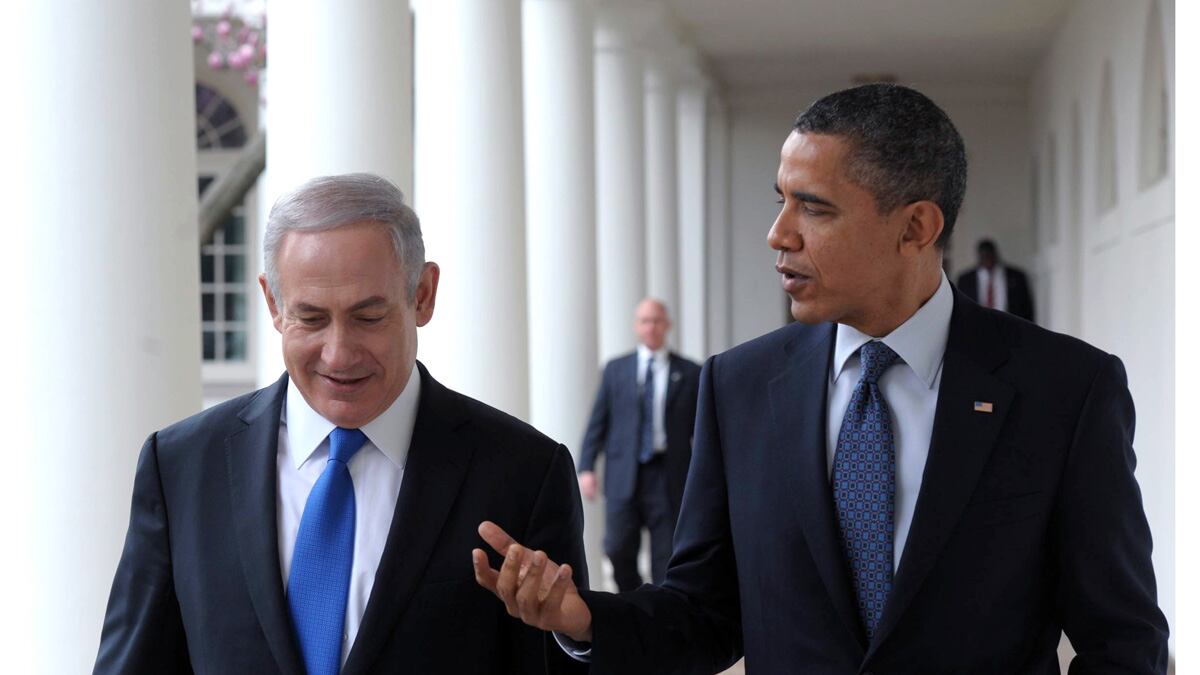For years now, Israelis have been noisily debating military action against Iran. And their conclusion, according to polls, is that America should do it. That’s somewhat ironic given that self-reliance—never again putting Jewish destiny in non-Jewish hands—is core to the Zionist ideal. But it’s also quite rational: an American strike would likely set back Tehran’s nuclear progress far more than an Israeli one would. And an American strike would not leave Israel as isolated in the world.

The problem is that back here in the United States, we haven’t been noisily debating military action against Iran. Yes, we’ve watched the Israeli debate voyeuristically. Countless pundits have weighed in on whether the Iranian regime would really risk its own survival to end Israel’s, on what Israel’s military capacities really are, on how Iran might strike back. But there’s been much less discussion of whether an attack on Iran is in America’s interest. And that needs to change.
It needs to change because Israel keeps nudging the U.S. closer to war. During his trip to Washington this spring, Benjamin Netanyahu hinted that Israel was close to launching a strike and reportedly urged President Obama to more explicitly pledge military action to prevent Iran from attaining a nuclear bomb. Obama did just that, rejecting a policy of containing a nuclear Iran and telling The Atlantic’s Jeffrey Goldberg that his threat to use military action to prevent Iran from going nuclear was not a “bluff.”
Now Israel reportedly is on the verge of attacking yet again and pushing for an even blunter pledge that America will attack, perhaps by next summer. “They are aiming for a specific thing,” former Obama defense official Colin Kahl recently told The Washington Post. “They may be trying to push the Obama administration into a much greater declaration of red lines, an even more declarative statement about the use of force.”
This is nuts. In our political system, presidents are not empowered to promise to launch wars in backroom negotiations with foreign leaders. According to the Constitution (you know, the document the Tea Party loves so much), the power to declare war rests with Congress. And while that principle hasn’t exactly been respected in recent decades, the Gulf and Iraq wars were at least preceded by high-profile congressional hearings, intense media focus, and a congressional vote.
Today, by contrast, Obama reportedly is talking to Israel about an Iran war while talking to Americans primarily about Medicare and the economy. And the media and Congress are largely playing along. Polling shows that Americans generally back military action if that’s what it takes to prevent Iran from getting a nuke. But according to a Pew survey this March, 59 percent of them say they’ve heard either “little” or “nothing” about the issue.
And who can blame them? Has either Congress or the media done detailed investigations into how exactly a nuclear Iran would threaten the United States? Or into how American military action might affect the safety of U.S. troops in Afghanistan and the Gulf? Or into what kind of anti-American terrorism an attack might spark? Or into what impact a strike would have on relations with key U.S. allies like Turkey, Saudi Arabia, and Egypt? Or into how military action would influence global oil prices and the world economy?
The Bush administration’s sales job for the Iraq War may have been deeply misleading, but at least the White House made a public case. The Obama administration, by contrast, seems to be offering ever more concrete pledges of war while making barely any sustained public case at all.
“Can’t they make that case later?” one might ask. After all, a U.S. attack almost certainly wouldn’t come until next year. The problem is that in an effort to forestall an Israeli strike, Obama is making war pledges now. If the pledges constitute a binding commitment—the U.S. will strike rather than accept an Iranian nuke—then Obama is circumventing America’s constitutional process. If his pledges don’t constitute a binding commitment, then he’s eroding America’s international credibility.
Before Obama makes any more promises of military action, he should give a full-length speech explaining why, subject himself to a press conference, and send his top defense and foreign-policy officials to testify on Capitol Hill. Such moves may not be electorally shrewd: hearing Obama explain why it’s worth going to war to keep Iran from getting a nuke could depress turnout among a Democratic base that I suspect strongly disagrees. But he should do it anyway. Americans deserve a real debate about war now, before they go to the polls. And I suspect that debate will help clarify for Israelis the degree to which a presidential promise of war can actually be relied upon.




